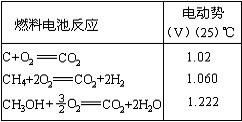1) fuel cell


燃料电池
1.
Progress in hydrogen peroxide production through fuel cell reactor;


燃料电池型反应器生产过氧化氢的研究进展
2.
Research on online monitoring system of fuel cell resistance;


燃料电池内阻在线测试系统研究
2) fuel cells


燃料电池
1.
Progress in Synthesis,Properties,and Application in Fuel Cells of Polybenzimidazole;


聚苯并咪唑的合成、性能及在燃料电池膜材料中的应用
2.
Progress in the research and development of fuel cells——A review of The 56th Annual Meeting of the International Society of Electrochemistry;
燃料电池研究进展——第56届国际电化学学会年会回顾
3.
Research progress of bipolar plate for proton exchange membrane fuel cells;


质子交换膜燃料电池双极板研究进展
3) fuel battery


燃料电池
1.
Green power supply——fuel battery and it s prospect of marine use;


绿色电源——燃料电池及其船用化展望
2.
This article introduces the precise screen printing technology for fuel battery, crystal silicon solar battery and semiconductor solar battery.
介绍了绿色新兴能源燃料电池、晶体硅太阳能电池、化合物半导体太阳能电池制造技术中的精密网版印刷技术;提供了上述制造技术中精细网版制作的重要工艺参数;同时,对各种不同的网版制作方式、印刷方式及印料等最新资讯也作了较为详细的介绍。
4) SOFC


燃料电池
1.
2O2-δ electrolyte for solid oxide fuel cellI(IT-SOFC)δ was prepared by co-precipitation method.
采用共沉淀法制备了中温固体氧化物燃料电池(IT-SOFC)电解质材料Ce0。
2.
Air plasma spray technique was used to gain a thin and porous anode layer of intermediate temperature solid oxide fuel cell SOFC by taking charcoal active powder as pore-forming agent in this paper.
采用大气等离子喷涂技术,以活性炭粉作为成孔材料,获得了薄且多孔的中温固体氧化物燃料电池SOFC阳极层。
3.
The working principle of solid oxide fuel cell(SOFC) and the structure of power generating system with SOFC have been briefly presented, the said power generating system being simulated with static solfware Aspen Plus.
介绍了固体氧化物燃料电池的工作原理和发电系统组成 ,并用稳态模拟软件AspenPlus对发电系统进行模拟 ,估算的输入数据及模拟结果与国外类似系统的实验数据非常接近 ,说明模拟是成功的 ,为进一步优化燃料电池发电系统奠定了基
5) PEMFC


燃料电池
1.
System Control for PEMFC-Driving Robot Based on 32 Bit Microcontroller;


基于32位微控制器的燃料电池驱动机器人系统控制研究
2.
Research of Graphite-base Composite Bipolar Plates of PEMFC;


质子交换膜燃料电池双极板用石墨基复合材料的研究
3.
The PEMFC stack could work well under large load change, and it came to steady state within 4 seconds.
为了探索PEM燃料电池堆的动态特性,对自制5kw PEM燃料电池堆进行了详尽的实验研究。
6) fuel cell


燃料电池燃料舱
补充资料:燃料电池
| 燃料电池 fuel cell 燃料在电池中直接氧化产生电能的化学电源。电池中的活性物质不断地从外部送入正、负电极,反应产物从电池中排出,可以连续使用。燃料电池是化学能直接转变成电能的能 量转化机器,理 论上能量转化率为100%,实际上可达80%。 燃料电池的类型主要有:①氢-氧燃料电池。电池的活性物质为H2(g)和O2(g);根据电解质性质的不同有酸性、碱性、熔融盐燃料电池;按使用温度有低温(75~100℃)、中温(100~500℃)、高温(500~1000℃)型燃料电池。例如离子交换膜低温酸性氢-氧燃料电池,正、负极为少量贵金属催化剂与导电金属网制成,将它们分别压于离子交换膜两侧,电解液为高浓度的磷酸。反应为:  工作温度为40~60℃。又如低温碱性氢-氧燃料电池,负极为镍粉和铂、钯烧结而成 ,正极为 有效面积很大的银电极,电解液为高浓度的KOH溶液,隔膜为石棉膜或钛酸钾膜,反应为: 工作温度为40~60℃。又如低温碱性氢-氧燃料电池,负极为镍粉和铂、钯烧结而成 ,正极为 有效面积很大的银电极,电解液为高浓度的KOH溶液,隔膜为石棉膜或钛酸钾膜,反应为: 工作温度为80~90℃。高温固体电解质燃料电池,复合氧化物(ZrO2)0.85(CaO)0.15、(ZrO2)0.9(Y2O3)0.1,碳酸盐等为固体电解质,高温下它们的离子能够导电。将固体电解质制成短管,在其内外壁涂覆多孔的Pt作为正、负极。反应: 工作温度为80~90℃。高温固体电解质燃料电池,复合氧化物(ZrO2)0.85(CaO)0.15、(ZrO2)0.9(Y2O3)0.1,碳酸盐等为固体电解质,高温下它们的离子能够导电。将固体电解质制成短管,在其内外壁涂覆多孔的Pt作为正、负极。反应: 工作温度为1000℃。 工作温度为1000℃。② 有机化合物燃料电池。此类电池负极活性物质为CH3OH、NH2NH2 (肼)、烷烃、天然气甚至煤碳等有机物,正极为O2或空气等。例如甲醇-氧燃料电池,负极为含有少量贵金属催化剂的Ni电极,正极为Ag电极或载有催化剂的活性碳电极,电解液为H2SO4或KOH溶液等,反应为:  其他有机化合物燃料电池见表。 其他有机化合物燃料电池见表。 对燃料电池研究工作,首先为了使燃料离子化寻找高效价廉的催化剂,其次是流程设备的合理选择,还有电解质高温腐蚀等问题都需要解决,困难较多。磷酸型氢-氧燃料电池、高温固体电解质燃料电池有希望成为民用燃料电池。 |
说明:补充资料仅用于学习参考,请勿用于其它任何用途。
参考词条